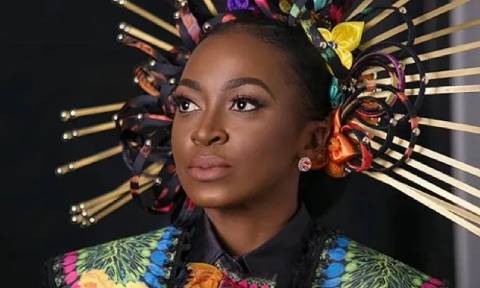“The only problem I had with Fela was that we liked the same girls,” Rikki Stein, Fela’s manager for 15 years, says amid roaring laughter. Having managed the late Afrobeat legend for so many years, it may well be said that no one can tell the story of Abami Eda better than Rikki Steins.
Stein, the executive producer of the popular musical show, FELA! says, “I learnt a sense of humour because Fela likes to laugh. If you ask me to describe Fela with one word, I will say ‘sweet.’ Fela was sweet, because he cared about people. He was transparent, and honest. He provided good opportunity and gave good example to the youth. Those were the things which Fela stood for when he was alive, and he paid the price for what he stood for. He was badly beaten severally for the course he was channelling and he never stopped. That is the main reason why I love him.” Talking about how he became the white man behind the schedule of Fela for 15 years, Stein says, “What has white and black got to do with Fela? He cared about people not white or black. I cannot really explain that. All I know is that we were friends. After some time, he asked me to handle a few things for him and it started from there. He used to call me Mr Reason.”
On his relationship with Fela’s family and their involvement in the show, FELA!, he says, “I have a good relationship with the family. We are doing the musical show with the family’s blessing. The family has the rights to this play. They are the owners. And everything we do to sell Fela, we represent the interest of the family and they are the ultimate beneficiaries.” Sharing his most memorable moment as Fela’s manager, Stein says, “I hate to say this, it was his funeral, I saw millions of people, including those who did not even like or agree with him, come to pay their last respects. “He was a wonderful and courageous man. I think he died disappointed because so many years after his death, the same thing he fought for are still happening. The messages in his music are still very relevant, even though they were written about 35 years ago.”
Something has, however, changed since Fela was here. Says Stein, “The only thing I have to say is that Lagos looks cleaner than before.” Otherwise, “It’s the same confusion, no light, water and others. It made me determined and made me want to create an environment where Nigerians will pay homage to their favourite sons. Fela should be recognised, because he is Nigeria’s favourite son. “I saw a speech that (Governor) Fashola made when he commissioned the statue of his younger brother, Beko, where he said ‘Those who suffered at the hands of the authorities, we would see that they are compensated whether still alive or posthumously.’ I want to see Fela recognised in this country. It’s time for that and probably what we are doing with our show would be the first step towards something like that.”


















